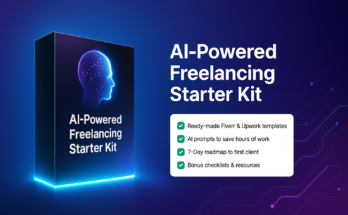Do you find yourself eating to cope with your emotions or indulging in binge-eating episodes? How ChatGPT Can Help You Overcome Emotional Eating and Binge-Eating If yes, then you’re not alone. Emotional eating and binge-eating are widespread issues that affect many people worldwide. Emotional eating occurs when you eat to suppress or manage your feelings, while binge-eating is characterized by eating large amounts of food in a short time frame, often accompanied by feelings of guilt and shame. These behaviors can be challenging to overcome, but with the right support and guidance, you can learn to manage them. In this article, we’ll discuss how ChatGPT can help you overcome emotional eating and binge-eating.
Outline
- Introduction
- What is emotional eating?
- Causes of emotional eating
- Emotional effects of emotional eating
- What is binge-eating?
- Causes of binge-eating
- Emotional effects of binge-eating
- How ChatGPT can help you overcome emotional eating and binge-eating
- Personalized coaching
- Cognitive-behavioral therapy
- Mindfulness techniques
- Nutritional guidance
- How can I stop emotional and binge eating?
- Identify your triggers
- Practice self-care
- Seek support
- Use positive affirmations
- How do I motivate myself to stop binge eating?
- Set achievable goals
- Celebrate small victories
- Practice self-compassion
- Create a support system
- What are the emotional effects of overeating?
- Anxiety
- Depression
- Guilt
- Shame
- How do you recover from a day of binge eating?
- Practice self-forgiveness
- Resume healthy eating habits
- Stay hydrated
- Get back to your routine
- How can emotional stress influence your eating behavior?
- Cortisol and stress eating
- Emotional eating triggers
- Conclusion
- FAQs
What is emotional eating?
Emotional eating is the act of consuming food as a response to emotional triggers such as stress, anxiety, boredom, or sadness. It’s a coping mechanism used to numb emotional pain, distract oneself from unpleasant feelings, or to fill a void. Emotional eating can result in the consumption of excess calories and can lead to weight gain and other health issues.
Causes of emotional eating
Emotional eating can be caused by various factors, including:
- Childhood habits: If you were rewarded with food as a child, you may associate food with comfort or pleasure.
- Negative self-image: If you have a negative perception of yourself, you may use food to cope with low self-esteem.
- Stressful life events: Traumatic events such as a breakup or a job loss can trigger emotional eating episodes.
- Lack of healthy coping mechanisms: If you don’t have healthy coping mechanisms to deal with stress, you may resort to emotional eating.
Emotional effects of emotional eating
It can have various emotional effects, including:
- Temporary relief from unpleasant feelings
- Increased stress levels due to guilt and shame
- Lowered self-esteem due to weight gain and negative body image
- Feeling out of control and powerless
What is binge-eating?
Binge-eating is a type of eating disorder characterized by consuming large amounts of food in a short time frame. People with binge-eating disorder experience feelings of guilt and shame after eating.
Causes of binge-eating
The causes of binge-eating are complex and can be both psychological and physiological. Some common causes include:
- Negative emotions: Similar to emotional eating, negative emotions such as stress, anxiety, and depression can trigger binge-eating episodes.
- Dieting or restrictive eating: Restricting your food intake can lead to intense cravings and binge-eating episodes.
- Genetics: Some people may be genetically predisposed to binge-eating.
- Body image issues: People with poor body image and self-esteem may turn to food as a means of coping.
Emotional effects of binge-eating
Binge-eating can lead to various emotional effects, including:
- Guilt and shame after eating
- Anxiety and depression
- Low self-esteem
- Difficulty forming and maintaining relationships
How ChatGPT can help you overcome emotional eating and binge-eating
ChatGPT is an online platform that offers personalized coaching and therapy to help people overcome emotional eating and binge-eating. Here are some ways ChatGPT can help:
Personalized coaching
ChatGPT offers personalized coaching sessions with certified health coaches who can help you identify your triggers and develop a plan to overcome them. Coaches can provide ongoing support and accountability to help you stay on track.
Cognitive-behavioral therapy
ChatGPT offers cognitive-behavioral therapy (CBT), which is a form of therapy that focuses on changing negative thought patterns and behaviors. CBT can help you identify and challenge negative thoughts and develop healthier coping mechanisms.
Mindfulness techniques
ChatGPT offers mindfulness techniques that can help you become more aware of your thoughts and emotions. Mindfulness can help you develop a more positive relationship with food and can reduce the likelihood of binge-eating episodes.
Nutritional guidance
ChatGPT offers nutritional guidance to help you develop a healthy relationship with food. Nutritional coaches can help you develop meal plans and make healthier food choices.
How can I stop emotional and binge eating?
Stopping emotional and binge-eating can be challenging, but it’s possible. Here are some tips to help:
Identify your triggers
Identify the situations, emotions, or thoughts that trigger your emotional or binge-eating episodes. Once you identify your triggers, you can develop strategies to avoid or cope with them.
Practice self-care
Practicing self-care can help you manage stress and negative emotions. Some examples of self-care activities include exercise, meditation, and spending time with loved ones.
Seek support
Seeking support from friends, family, or a therapist can help you overcome emotional and binge-eating. Having a support system can provide encouragement and accountability.
Use positive affirmations
Using positive affirmations can help you challenge negative thoughts and beliefs. Repeat positive affirmations such as “I am in control of my eating habits” or “I am worthy of self-care.”
How do I motivate myself to stop binge eating?
Motivating yourself to stop binge-eating can be challenging. Here are some tips to help:
Set achievable goals
Set achievable goals for yourself and celebrate small victories. Breaking down your goals into smaller, manageable steps can make them more attainable.
Celebrate small victories
Celebrate small victories such as resisting an urge to binge-eat or choosing a healthier food option. Celebrating your successes can provide motivation and encouragement.
Practice self-compassion
Be kind and compassionate to yourself. Recognize that overcoming binge-eating is a journey and that setbacks are a natural part of the process.
Create a support system
Create a support system of friends, family, or a therapist who can provide encouragement and accountability.
What are the emotional effects of overeating?
Overeating can have a range of emotional effects. Some common emotional effects of overeating include.
Guilt and shame
Overeating can lead to feelings of guilt and shame, especially if you are trying to lose weight or maintain a healthy diet.
Anxiety and depression
Overeating can also trigger feelings of anxiety and depression, especially if it becomes a regular pattern of behavior.
Low self-esteem
Overeating can lead to feelings of low self-esteem and poor body image, especially if you are unhappy with your weight or appearance.
Difficulty forming and maintaining relationships
Overeating can also make it difficult to form and maintain relationships. You may feel self-conscious or ashamed about your eating habits, which can make social situations stressful.
How do you recover from a day of binge eating?
Recovering from a day of binge-eating can be challenging, but it’s important to remember that one day of overeating doesn’t define you or your progress. Here are some tips to help:
Don’t beat yourself up
It’s important to be kind and compassionate to yourself after a day of binge-eating. Beating yourself up will only make you feel worse and can lead to more negative emotions.
Refocus on your goals
Refocus on your goals and remind yourself why you want to overcome binge-eating. Use your goals as motivation to get back on track.
Get back to your routine
Get back to your normal routine as soon as possible. Stick to your regular eating schedule and make healthy food choices.
Practice self-care
Practice self-care activities such as exercise, meditation, or spending time with loved ones. Taking care of yourself can help you manage stress and negative emotions.
Seek support
Seek support from friends, family, or a therapist. Having a support system can provide encouragement and accountability.
How can emotional stress influence your eating behavior?
Emotional stress can influence your eating behavior in various ways. Here are some common ways emotional stress can lead to overeating:
Triggering cravings
Emotional stress can trigger cravings for high-calorie, high-fat foods, which can lead to overeating.
Emotional eating
It can also trigger emotional eating, which is eating in response to emotions rather than hunger.
Binge-eating
It can also trigger binge-eating episodes, especially if you are using food as a means of coping.
Disrupted eating patterns
Emotional stress can disrupt your normal eating patterns, leading to irregular meal times and skipped meals, which can lead to overeating.
In conclusion, emotional eating and binge-eating can have serious physical and emotional effects. It’s important to seek support and develop healthy coping mechanisms to overcome these behaviors. ChatGPT can provide personalized coaching and therapy to help you overcome emotional eating and binge-eating. Remember to be kind and compassionate to yourself and celebrate small victories along the way.
Conclusion
Emotional eating and binge-eating can be challenging behaviors to overcome, but with the right support and tools, it is possible. ChatGPT can provide personalized coaching and therapy to help individuals understand the underlying causes of their eating behaviors and develop healthy coping mechanisms.
By utilizing techniques such as cognitive-behavioral therapy, mindfulness, and stress reduction, ChatGPT can help individuals overcome emotional eating and binge-eating and achieve long-term recovery. Don’t let emotional eating and binge-eating control your life any longer. Reach out to ChatGPT today to start your journey towards a healthier relationship with food.
FAQs
- Can ChatGPT help me if I have a history of disordered eating?
Yes, ChatGPT can help you if you have a history of disordered eating. Our coaches and therapists are trained to work with individuals who have a history of disordered eating and can provide personalized support and guidance.
- How can I motivate myself to stop binge-eating?
Motivating yourself to stop binge-eating can be challenging, but setting realistic goals and focusing on the benefits of overcoming this behavior can be helpful. Seeking support from friends, family, or a therapist can also provide motivation and accountability.
- Can emotional eating be a sign of an underlying mental health condition?
Yes, emotional eating can be a sign of an underlying mental health condition, such as anxiety or depression. It’s important to seek professional support if you are experiencing emotional eating or other disordered eating behaviors.
- How long does it take to overcome emotional eating and binge-eating?
The time it takes to overcome emotional eating and binge-eating can vary depending on individual circumstances. It’s important to remember that recovery is a journey and progress is not always linear. Seeking professional support and developing healthy coping mechanisms can help expedite the recovery process.
- Can ChatGPT provide me with meal plans or nutrition advice?
ChatGPT does not provide meal plans or nutrition advice. However, our coaches and therapists can provide guidance and support to help you develop a healthy relationship with food and make informed choices about your nutrition.



